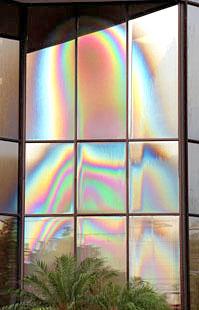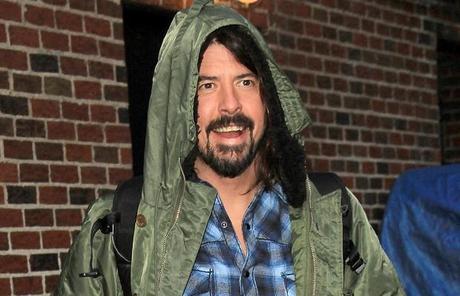
No, that isn’t toast.
What happened to all of the good miracles?
I mean, the interesting stuff, coincidentally, all happened long before video cameras – or the internet – were around and ready to at least semi-reliably record and distribute actual information. How annoying.
No-one turns water into wine any more (a very handy party trick), and it’s been a bloody long time since anyone’s had the privilege of a night-time joy-ride on a flying Donkey-Mule.
All we get now, is Jesus on toast.
“Miracle!”? I think not.
However, I have a feeling [can you tell?] that virtually all of even the Biblical/Qur’anic (etc.) ‘miracles’ are, in fact, nothing more than stories themselves. Hearsay. Myths. Bollocks.
Why? Well, take the definition of ‘miracle’, for a start:
“Miracle: an extraordinary and welcome event that is not explicable by natural or scientific laws and is therefore attributed to a divine agency” – http://oxforddictionaries.com
Note two things – ‘welcome’ and ‘not explicable by natural or scientific laws‘. If something, a natural phenomena, isn’t explicable by the natural or scientific laws of the time, then that is indicative of nothing more than those laws needing an update. There isn’t, I’d love to be certain of, a half-decent scientist alive today who, in the absence of sensible explanations for something seemingly extraordinary, would make the highly illogical leap from “we don’t know what caused that” to “Goddidit”. Some may ‘welcome’ that moronic response, yes, but nature simply doesn’t care to supply a favoured reality to those who naively assume their own and love to shout about it – it just is.
And, by the way, a characteristic of that very ‘nature’ (you know, the one that exists – not the true-to-the-miracles theist’s) is complexity. Something rare and confusing isn’t miraculous, it’s just rare and confusing… Until it’s well within our power, as a species, to explain it.
Take disease. Once thought of as some sort of (perhaps deserved) curse, we now know a lot of it can be attributed to, for example, tiny little animals called bacteria or ‘faults’ in our genetic code – the discovery of which, in of itself, links us to virtually every other living thing on the planet (right up to those tiny little curses).
[Side note: why didn't Jesus or Muhammed tell anyone about germ theory? That would have been 'miraculous', for want of a better word.]
Or take something a bit more vague, like, again, seeing Jesus on a piece of toast/on that dog’s arse (above, in case you missed it). It’s rare, it’s pretty confusing, it’s pretty laughable – but it’s most certainly not a miracle. Before that’s confirmed, way before, every other perfectly reasonable possibility – including “we just don’t know yet” – has to be ruled out.
- Was it a hoax? Maybe. There’s incentive: eBay.
- Is it really Jesus, or are we imagining familiar pictures as we gaze at passing clouds? Quite possibly. Pareidolia – that’s “seeing patterns in random data” for purely psychological reasons – is a common and much-understood factor key to many supposed (heavily culturally/religiously-influenced) ‘miraculous’ sightings.
- Is it impossible, or just unlikely? It’s just unlikely. Millions upon millions of pieces of toast have been toasted by now, so the chances of not even one of them resembling something are understandably slim.
I could go on.
I often find it’s the case, when a person so eagerly exclaims something to the effect of “what are the chances!? It’s a miracle!”, that they lack simple knowledge of (or desire to think about) just how many, as Tim Minchin has said, things there are.
“The Doctors told me I had only a 1% chance of survival – but look at me now! It’s a miracle!”
No, no: simple probability. Ninety-nine other people died.
Rare things happen all of the time, and I think there’s a certain irony in the fact of situations where, through the media, such happenings are blown so far out of proportion that they may reach just about enough people for it to be likely that one of them had a similarly rare experience themselves (and not least because of being influenced by the reporting of the first). Numbers – I love ‘em.
The phrase “what are the chances!?”, even on its own, can be enough to hit a nerve with me though, I have to admit.
“Your birthday is on the same day as my older sister’s? What ARE the chances!?”
I always want to get a calculator out at something like that…
 We humans seem to love to see patterns in trivial things; and whether that means we make faces out of the creases of curtains hanging in a dark room or over-signify relative statistical guarantees, it’s almost certainly never miraculous. It can all be explained, but we’re often either too reluctant or too ignorant to even try. We’re also, in case you haven’t noticed, heavily infested with all manner of biases. Case in point: two people may look at this apparent image of the Virgin Mary on a Florida office building (right) and conclude it resembles two entirely different figures – her, because they were brought up knowing her image well, or, say, Dave Grohl (because they obviously weren’t).
We humans seem to love to see patterns in trivial things; and whether that means we make faces out of the creases of curtains hanging in a dark room or over-signify relative statistical guarantees, it’s almost certainly never miraculous. It can all be explained, but we’re often either too reluctant or too ignorant to even try. We’re also, in case you haven’t noticed, heavily infested with all manner of biases. Case in point: two people may look at this apparent image of the Virgin Mary on a Florida office building (right) and conclude it resembles two entirely different figures – her, because they were brought up knowing her image well, or, say, Dave Grohl (because they obviously weren’t).

And the choice, in my mind, is clear.
Carnun 

